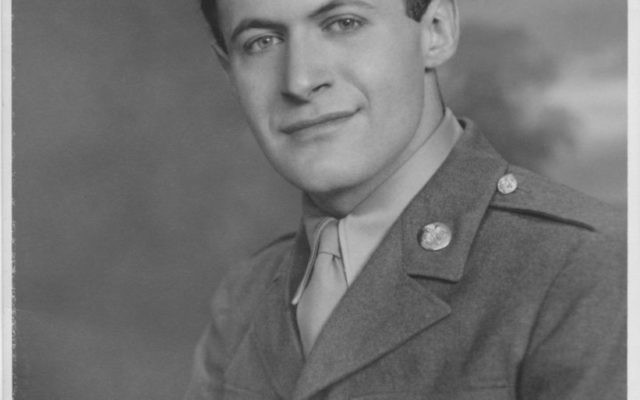Father’s WWII Stories Led Eisner to Manila Spy
"MacArthur's Spies" author Peter Eisner wanted to learn and share more tales of the Pacific.
The Atlanta Jewish Times interviewed Peter Eisner about “MacArthur’s Spies: The Soldier, the Singer and the Spymaster Who Defied the Japanese in World War II.”
AJT: What compelled you to write this story?
Eisner: I wrote several books and one long article about World War II in Europe. But my dad was a Navy officer in the South Pacific, and I wanted to find out what it was like for him. My dad was just a common man who joined the fight against fascism and Nazis. As I was researching, I found the deck logs of his ship. I was able to confirm the few stories he told me. I was able to read the day-by-day progress. It was very emotional for me. I wanted to go further.

AJT: How did you discover the tale of Claire Philips, an American spy in Manila?
Eisner: One of my colleagues gave me a book called “Ghost Soldiers.” It was about the rescue of the men who were survivors of the Bataan death march. There was a chapter about this mysterious woman named Claire Phillips. I found her wartime diary at the National Archives. I was blown over. She vividly told the story of what it was like being in Manila during Japanese occupation.
AJT: Why have other events in World War II, such as D-Day, overshadowed the war in the Philippines?
Eisner: The United States, especially from the early summer to the end of 1944, was preoccupied and rightfully so with D-Day. It was easier to cover for journalists. The reporting was easier to receive. In the Philippines, the vast expanses of fighting from island to island made the logistics of covering this more difficult. The fascination with D-Day covered over the Battle of Leyte, the largest naval battle of World War II.
AJT: Should there be a remake of the 1951 film about Claire Phillips, “I Was an American Spy”?
Eisner: The movie is more fictionalized and more trite than the story of Claire Philips should be. It’s even further from reality than her memoir, “Manila Espionage.” It was also the era of backlot quick shots. This was done on a shoestring with everything but potted plants instead of a real jungle. I think her story deserves a better version of that, and it’s very cinematic.
AJT: Are there any trends or facts in this story that correspond with the Jewish experience?
Eisner: Philippines President Manuel Quezon rescued 1,200 Jews escaping Nazi Germany; Yad Vashem recognized him as a righteous gentile. My entire search for how people reach a moment of moral clarity and have a decision they have to make. My interest in that, my desire to talk about that, talks to who I am. It has everything to do with my background I bring to it, which has to do with a Jewish perspective.
AJT: What can the events you describe teach us about today?
Eisner: In World War II, there was a moment when there was no such thing as a red state and a blue state. There was unity among Americans to fight fascism and fight the Nazis. There were American ideas and values at stake, democracy and. Decency. My dad used to talk about the men he shared the ship with. He was working with a Southern guy who might not have had a high education. They were fighting together, though, the decent fight against evil. My readers are from both sides of the street. This is about all of us.
AJT: Any surprises or insights during research?
Eisner: Heroes come in all different sizes, forms. That was one of the great lessons I took from this. That for me made the story. During war, unassuming people have moments of moral clarity. I looked for a character like that and found one: Claire Phillips. She was a revelation.





comments